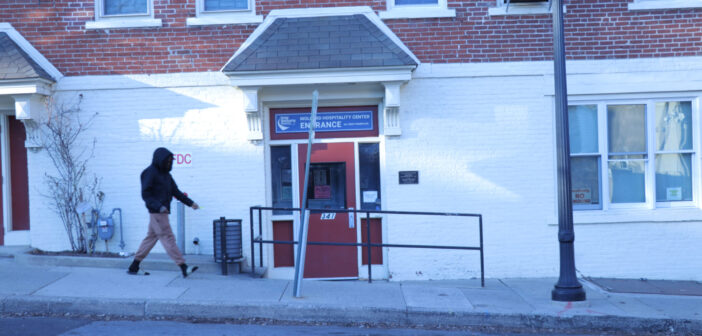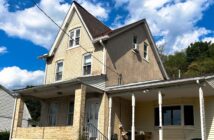President Joe Biden signed the Consolidated Appropriations Act 2023 into law on Dec. 24, 2022. Although the entirety of the budget is not yet approved due to bipartisan issues within Congress, the program took effect on Jan. 1.
The Consolidated Appropriations Act 2023 allowed for Pennsylvanian Rep. Susan Wild and Sen. Bob Casey to allocate money to create the Community Project Fund. In doing so, the representatives put out a competitive application in which members of the community were able to apply for capital projects.
New Bethany Ministries, located at 333 W Fourth St. in Bethlehem, received $2.2 million from a reimbursement grant through the Department of Housing and Urban Development. This means the nonprofit will have to put up the money first and then be reimbursed by the federal government.
New Bethany Ministries is a nonprofit organization offering a transitional housing program and stable housing assistance to homeless individuals and families.
In this particular round of the Community Project Fund, New Bethany Ministries was selected to receive the grant to expand its services.
Marc Rittle, director of New Bethany Ministries, said the organization is planning alongside a partner in the neighborhood — which has not yet been disclosed — to purchase a property that contains a building on the premises to expand their campus. Construction for the project will begin in 2024.
New Bethany Ministries’ facilities consist of a transitional housing building with 12 units and 14 dormitory-style, single-occupancy rooms. The organization also owns a few single-family residences, a food pantry and a soup kitchen. Conjoined with their main offices, the property takes up half a block and serves about 20 families a year.
Rittle said he doesn’t like referring to it as transitional housing.
“It makes it sound like it’s not your home, and I’ve lived in plenty of places where I’ve only lived there for one year or only lived there for two years,” Rittle said. “We want people to be at home when they’re with us. We are your home.”
In adding the property, Rittle said New Bethany Ministries hopes to expand the number of people they are serving and secure affordable and stable housing for their Temporary Supportive Housing Program.
New Bethany Ministries’ work does not go unnoticed by the community.
“It is a great thing how they help feed the homeless and less fortunate, so I am glad to see them be able to keep building and getting bigger and better so that homeless persons do not have to stay out on the streets,” said Bill S., a South Side resident familiar with New Bethany Ministries’ work.
Rittle said the organization hopes to turn the 14 units of single-occupancy rooms into efficiency apartments. From there, they plan to add more units to the building.
Given the funds, Rittle said the nonprofit has devised a plan consisting of two goals: to purchase the aforementioned property to allow for more office space, and to develop new units and renovation of current spaces.
The developments will allow individuals, couples and families to stay in the Temporary Supportive Housing Program for a year or two at most. During the stay, caseworkers collaborate to create a plan to move residents out of New Bethany Ministries and into stable housing.
As the program develops, Rittle said New Bethany Ministries plans to revisit applicant qualifications. As of now, the only way to get accepted by the program is through a referral from the Department of Children and Youth in Lehigh or Northampton counties. The only qualification is that you must be homeless.
Rittle said New Bethany Ministries plans to rewrite the program to give preference to marginalized communities. In continuing to help families, especially women and children, the hope is to help homeless individuals who are part of the LGBTQ+ community by upholding standards of equity and being as welcoming as possible.
“We are excited for this shelter expansion as we look forward to serving single women and the LGBTQ+ populations,” said Veronne Demesyeux, a New Bethany Ministries employee. “We are working on our staff skills to address and be sensitive to the needs of these populations.”
Rittle said LGBTQ+ Health Needs conducted a study in the Lehigh Valley that found 25.4% of transgender or non-binary respondents have experienced homelessness at one point in their lives.
He said New Bethany Ministries is working to address a need that is not being addressed in the Lehigh Valley: shelter space for the LGBTQ+ community.
“We want to do as much as we can when we build the new program to demonstrate an openness and a welcoming attitude,” Rittle said. “A welcoming policy probably is even a stronger word to ensure that whoever needs transitional housing or whoever needs temporary supportive housing — whoever needs housing at all — that we’re here to help you.”






Comment policy
Comments posted to The Brown and White website are reviewed by a moderator before being approved. Incendiary speech or harassing language, including comments targeted at individuals, may be deemed unacceptable and not published. Spam and other soliciting will also be declined.
The Brown and White also reserves the right to not publish entirely anonymous comments.